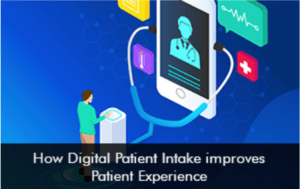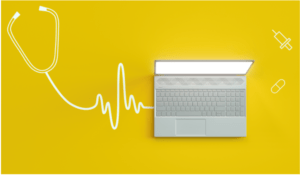
In today’s fast-paced world, the healthcare sector is evolving to provide more efficient and patient-centric services. Two key elements contributing to this evolution are hospital management software and patient care coordinators.One huge progression is the adoption of Electronic health Records (EHR). EHR frameworks have reformed how clinical data is stored,accessed, and utilised, bringing about a multitude of positive impacts on healthcare delivery. Let’s delve into the transformative effects of EHR on hospital management.
Digital Registration for Enhanced Patient Experience
Gone are the days of tedious paperwork during hospital visits. With digital registration, patients can seamlessly register for the first time, reducing waiting times and ensuring accurate data entry. Automatic notifications through SMS, email, and WhatsApp keep patients informed about their registration at XYZ Hospital, creating a connected and engaged healthcare experience.

Token System: Eliminating Long Waits
The implementation of a token system eliminates the need for patients to wait for hours on end. It streamlines the consultation process, providing patients with a more predictable and time-efficient experience. Additionally, offering a downloadable app ensures easy access to updates and relevant information, fostering a patient-friendly environment.
Empowering Patients through Technology
Appointment Booking Made Easy
Hospital management software enables hassle-free appointment booking, allowing patients to schedule visits at their convenience. This not only reduces administrative burden but also empowers patients to take control of their healthcare journey.

Digital Prescription and Telehealth Consultation
The integration of technology extends to prescription management and telehealth services. Patients can receive digital prescriptions and even consult with healthcare professionals through video calls. This ensures accessibility to medical advice without the need for physical presence, particularly beneficial in emergencies or for patients in remote locations.
Medication Suggestions at Your Fingertips
The software also provides patients with valuable information about suggested medications, enhancing health literacy. With just a few clicks, patients can access details about prescribed medicines, fostering a proactive approach to their well-being.
Ensuring Data Security: A Top Priority
For doctors, ensuring patient confidentiality is paramount. Hospital management software restricts access to patient data, ensuring that doctors can only view information when they have a scheduled appointment. This high level of security and encryption not only protects sensitive patient information but also builds trust between healthcare providers and their clientele.

In conclusion, the integration of hospital management software and the role of patient care coordinators are transforming the healthcare landscape. By embracing digital solutions, healthcare facilities can enhance patient experiences, streamline processes, and prioritise data security. This not only benefits patients but also empowers healthcare professionals to deliver more efficient and personalised care.